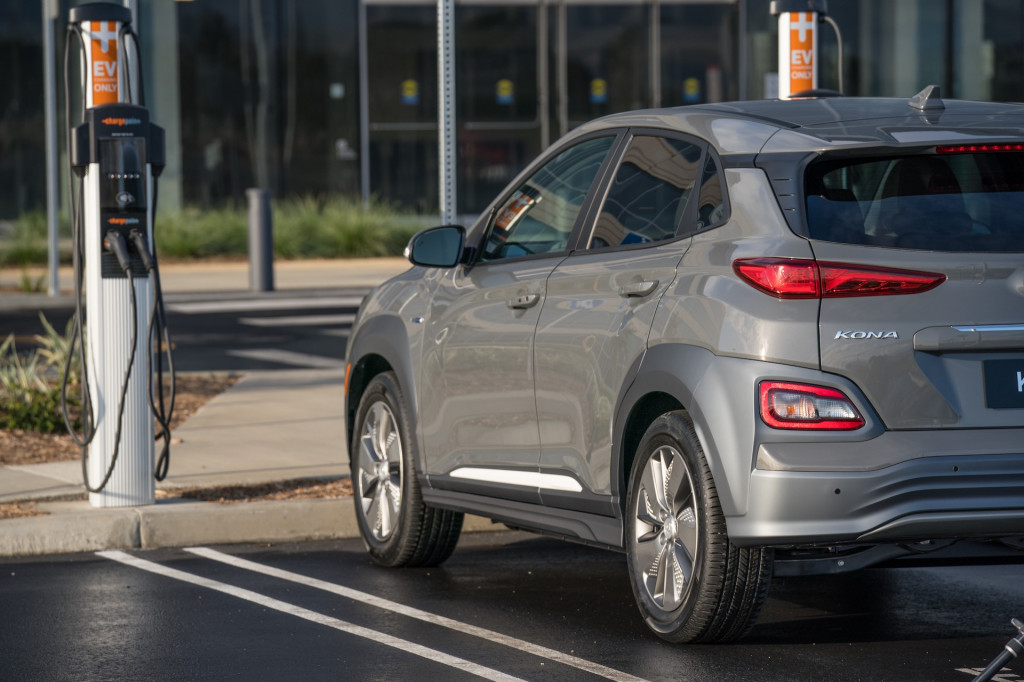With the issuance of the recall notice, submitted on October 13 and posted by the federal government Saturday, Hyundai Motor America confirmed to Green Car Reports that it has also asked dealerships to stop the sale of the Kona Electric in the U.S. and Canada—an estimated 1,000 vehicles in the U.S. and 10 in Canada—until the recall remedy is completed. That includes any Hyundai certified pre-owned Kona Electrics.
Including vehicles already delivered, the recall affects the entire population of U.S. Kona Electric models—6,707 vehicles—made between August 28, 2021 and March 2, 2020. Separately, in Canada, there are 4,375 Kona Electrics also to be covered by the recall.
“Hyundai is continuing to actively investigate this condition for identification of an exact root cause,” stated the automaker. It noted that the high-voltage system in affected vehicles “might contain certain electrical deficiencies.”

2020 Hyundai Kona Electric
Those deficiencies, Hyundai explains, could be related to damage to battery cells and/or faulty battery management system (BMS) control software. Altogether, the flaws could increase the risk of a short-circuit after fully charging the battery, Hyundai says.
Under the recall, owners will need to bring their Kona Electric to the dealership for an inspection of the lithium-ion battery pack—with free replacement if necessary—plus an update of the BMS.
Although there have been no reported fires in the U.S., a number of fires in other markets have prompted an investigation that started in 2019. Then, after three separate Kona Electric models that were parked—each with a full state of charge—caught fire in Korea. An incident in Europe, where Hyundai has been making the Kona Electric more widely available, and two in Canada met the same description in 2019, while through October 2020 the automaker notes another seven reports globally.
A report from the Korea Times earlier this month reported that a South Korean investigation made seemingly conflicting statements about the location of the alleged flaw—both referring to it as a manufacturing flaw in the cells, but also noting “electric problems in the battery pack assembly.”
There are about 77,000 Kona Electric vehicles worldwide, according to that report.
The battery pack in the Kona Electric is assembled by HL Green Power, which is a joint venture of LG Chem, which supplies the cells, and Hyundai Mobis. Hyundai and Kia have the same parent company, however the Kia Niro EV has completely different batteries on board—sourced by a different South Korea–based supplier, SK Innovation.
2019 Hyundai Kona Electric
The Kona Electric is a low-volume model, but it precedes a stronger push toward electric vehicles that starts next year, with the arrival of dedicated EV models under a new Ioniq sub-brand.
Kona Electric owners in the U.S. will be formally notified of the recall in December. In the meantime, Kona Electric drivers can input their vehicle identification number (VIN) at HyundaiUSA.com/Recalls or Recalls.HyundaiCanada.com to see if it’s affected.
They’re also advised “to park their vehicles outdoors and/or away from structures until their vehicle is remedied.” Hyundai says rental vehicles will be provided if needed.